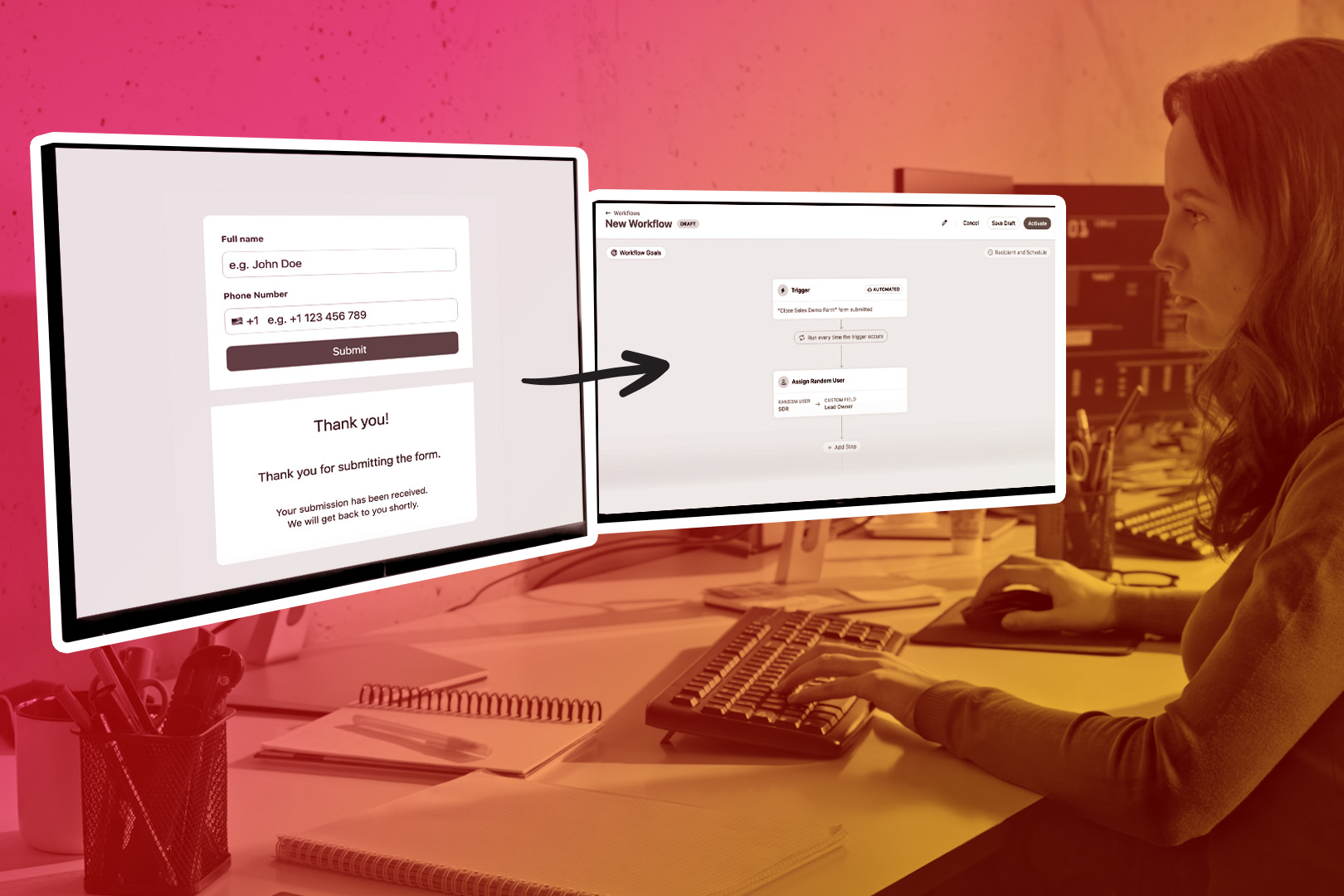Do you sell for a SaaS company? Then you're intimately familiar with common SaaS metrics like monthly recurring revenue (MRR) and annual recurring revenue (ARR). These are the gold standard in SaaS circles.
But guess what—they aren't the only metrics that matter. In fact, other metrics, such as total contract value (TCV) can have a greater impact on your company's profitability.
In this article, I'll explain exactly what total contract value is, how to calculate it for your SaaS business, and why you should spend time on this metric in the first place. Then I'll share five tips you can use to maximize TCV when you close deals.
What is Total Contract Value?
Let's pretend that you just closed a deal with a new customer. The terms? $200 a month for 12 months, plus a $500 onboarding fee. In this scenario, your TCV would be $2,900.
($200 x 12 + $500 = $2,900)
Now, it's easy to confuse TCV with other metrics like annual contract value (ACV) and customer lifetime value (CLV). But this would definitely be a mistake.
To avoid such confusion and to get a clearer perspective on your revenue growth, try our revenue growth calculator which is designed to provide instant, clear, and accurate results.
True to its name, annual contract value measures the amount of revenue a company earns from a given contract over a one-year timespan. Also of note, ACV does not include one-time fees. Total contract value, on the other hand, measures the amount of revenue a company earns over the entire life of a contract, as mentioned above, and does include one-time fees.
What about customer lifetime value? TCV and CLV, while similar, aren't the same either.
CLV measures the amount of revenue a company expects to earn from a customer over his or her entire lifetime. TCV measures revenue from a single contract. Put simply, CLV is an estimation, and can include projected revenue from multiple contracts, one-time fees, etc. TCV is based on an actual signed contract, but doesn't include revenue earned beyond it.
How Do You Calculate Total Contract Value?
If you want to use total contract revenue to propel your SaaS company forward, you have to learn how to calculate it. Fortunately, this is a simple task. Just use the TCV formula:

TCV = (monthly recurring revenue) x (contract term length) + (one-time fees)
To clarify, monthly recurring revenue refers to the amount of money your business receives from a customer every month. Contract term length refers to the length of the contract your customer signs with your company. And one-time fees refer to the onboarding, setup, and/or other fees you charge customers to help them use your services to their fullest extent.
Let's say that you've just sold a $50 monthly subscription to a new customer, and the contract lasts for 24 months. Let's also say that you convinced said customer that your company's premium onboarding package was worth the one-time fee of $300. Your total contract value for this deal would be $1,500 ($50 x 24 + $300 = $1,500)
(Note: TCV includes all fees related to a customer's purchase, including applicable taxes.)
While total contract value is an important metric for SaaS businesses, it has one major flaw: it assumes your company will receive the total revenue amount in the contract.
This isn't always the case. Customers cancel their subscriptions all of the time. Just because you inked a deal for X dollars, doesn't mean your company will see all of that cash. Early cancellation fees can help mitigate lost funds, but this flaw is something to keep in mind.
Why is Total Contract Value an Important Metric?
Now that you know what total contract value is and how to calculate it, let's talk about why the heck you should. Here are three reasons to jump on the TCV bandwagon:
Focus on Your Best Leads
Your company's marketing efforts produce leads, but not all of them are worth your time. You need to identify quality prospects for your sales team to pursue. TCV can help.
For example, you can segment current customers into different groups based on the TCV metric. You can then identify similarities between them and look for those traits in new leads. Finally, you can focus on leads in the "high spender" segment and earn more revenue.

Predict Revenue with Accuracy
How many sales will your department close next month? More importantly, how much total revenue will these deals drive for your company? These are important questions to answer.
TCV will help you make better revenue predictions than other metrics, such as CLV. Why? As mentioned above, TCV is based on signed contracts. CLV is based on hypotheticals. In other words, TCV will give you a more reliable look at the amount of revenue your team generates.
Optimize Your Entire Sales Strategy
Lastly, TCV will help you plan and implement a more effective sales strategy.
It makes sense. When you know which customer segments tend to produce the most revenue, you can use marketing channels that target these demographics.
You can also train your sales team to focus their attention on these customers. Doing so will help boost revenue, minimize churn, and fuel your company's growth. Win!
5 Ways to Maximize Total Contract Value for Your Company
Your company uses a recurring revenue business model, right? Then you should be using TCV to help inform your sales strategies. When you do, use these tips to improve your efforts.
Increase Contract Length
One of the best ways to maximize TCV is to increase the length of the contracts you sell. Doing so will help you earn more revenue and minimize customer acquisition costs (CAC).
Now, to make this happen, you might need to offer your customers an incentive or two. For example, you could give them a 20 percent discount if they sign up for two years instead of one. Or give them free access to premium features if they add an extra six months to their contracts.
This tip will require your salespeople to sharpen their negotiation skills as well. (Lucky for you, we've written a guide on sales negotiation strategies your reps can use to level up in this area.) Don't worry; the effort you put in will be more than worth it in the end.
Adjust Your Pricing Structure
Next, consider adjusting your current pricing structure.
You need to find the balance between volume and lucrativeness. In other words, you need to find a price that will allow your reps to close a ton of deals while still driving serious revenue.
To help you hit the mark, work hard to understand your customers. What problem does your company solve for them? And how badly do they want to solve it? When you know your average customers like the back of your hand, pricing will become much easier.
One more thing: do yourself a favor and implement a tied pricing structure. That way, you can cater to multiple customer segments at once. Cash-strapped organizations can subscribe to your lowest tier, while less budget-conscious organizations (or organizations that really care about the problem your product(s) solve) can subscribe to a higher one.
Make Upsell and Cross-sell Offers
Another way to maximize TCV is to upsell and/or cross-sell your customers.
Maybe your sales reps can encourage customers to subscribe to a higher-priced tier. Or purchase a related product. Or invest in a service offered by one of your partner providers.
Maybe your reps can really push upfront service fees and one-time payments, such as new customer onboarding packages, which will count towards your total contract value, too.
Here's the point: there are many ways to increase TCV, but upsell and cross-sell offers are some of the best because they will allow you to add value to customers while boosting profits.
Charge Early Cancellation Fees
Speaking of one-time fees…
Your customers will sign contracts with your company. But that doesn't mean they'll pay you the entire amount they promised. A portion of them will cancel before their contract ends.
Early cancellation fees can help you avoid this scenario. How so? Well, some customers would rather live out the life of their contracts than pay a fee to break them early.
Even if your fees don't deter cancellations, they'll at least help you earn back some of the value of the contract. If your customer agrees to pay you $100 a month for 12 months, but decides to cancel after the sixth month, your company is out $600. But if the contract that said customer signed included a $300 early cancellation fee, you're only out $300. Better!
Offer Incredible Customer Service
Don't forget to include customer service in your TCV calculations.
If your reps create amazing buying experiences for prospects, they'll pay for more expensive subscription plans and sign longer contracts. If they check in on existing customers to make sure they enjoy the product they just purchased and answer questions, customers will be more open to new contracts in the future, which might be more lucrative than in the past.
To make sure your reps offer incredible customer service, invest in a killer CRM software. Doing so will make it easy to organize prospect and customer information, schedule follow-up emails, and increase retention metrics for your company.
When it comes to CRM software for startups, you can't go wrong with Close. Our platform has all the tools your sales team needs to close deals quickly and satisfy customers. It also includes integrations with other popular apps, so you can create uber-productive workflows.
Sign up for a free 14-day trial of Close today to test it out and see if it's right for your team!
Make TCV a Priority for Your Sales Team
TCV is an important metric.
Once you start tracking it for your sales team, your reps will pinpoint higher-quality leads with ease while you predict future revenue growth with greater accuracy. You'll also have the information you need to optimize your entire sales strategy to achieve more success.
To maximize TCV for your sales team, implement the five tips I shared above. As long as you work to increase contract length, adjust your pricing structure, make upsell and cross-sell offers, charge early cancellation fees, and offer incredible customer service, you'll do just fine.
Want to see how a high-powered CRM can help you boost TCV? Check out our on-demand demo of Close.














.jpg)